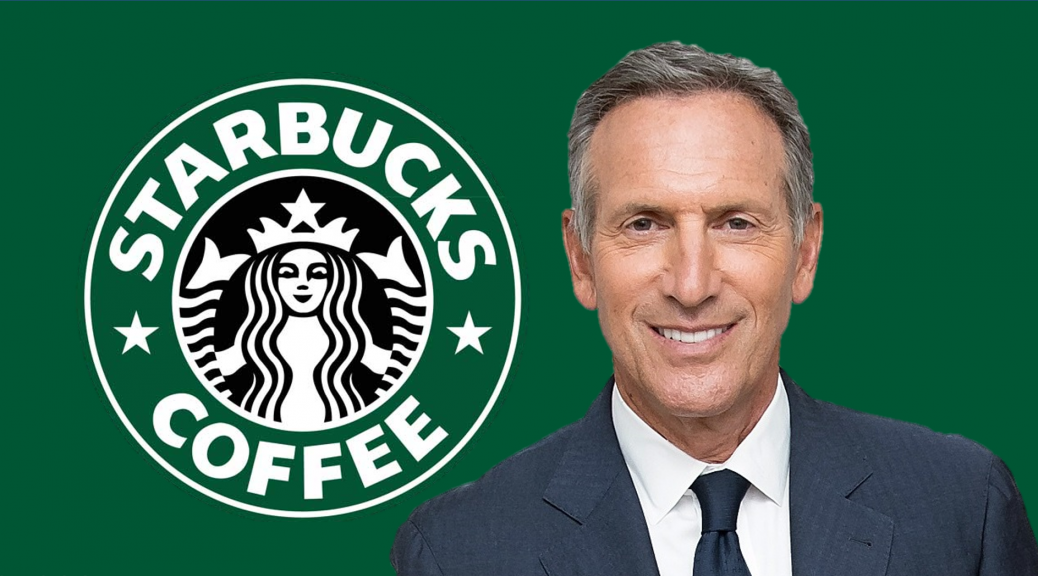Jump Into The Pool
Entrepreneurship is getting increasingly possible with technology and access to capital. This is an enormously good time to become one, you need to understand fiduciary responsibility and the values you want to bring to the business. If you have a great idea that you are passionate about you need to decide if you are willing to make the sacrifice. There is no mentor, no instruction manual; you simply need to jump into the pool.
Find out what the price of success is and pay it.
Starbucks as a Value Based Company
In 1986, Starbucks was a coffee supplier with 10 stores. They believed that values and profits were not mutually exclusive. Schultz grew up in the projects and when his father broke his hip, he was fired and there was no hope in the family. That memory sticks with Schultz so much that Starbucks has an employee healthcare plan that invests in people. There is an employee college degree program. Starbucks had a race relations day in 2018 in light of a discrimination in their stores. Starbucks values are progressive.

Starbucks China
Starbuck has >3500 stores in China. So how do you transfer your culture in a different market? Howard Schultz actually had struggled with China, he sent two Americans to lead the Chinese expansion. It was a Tea-drinking society. But bad management decisions were reversed when Belinda Wong became CEO of Starbuck China, she was able to attract great people, identify the right cultural mix and bring the Starbucks brand into the heart of the Chinese consumer.
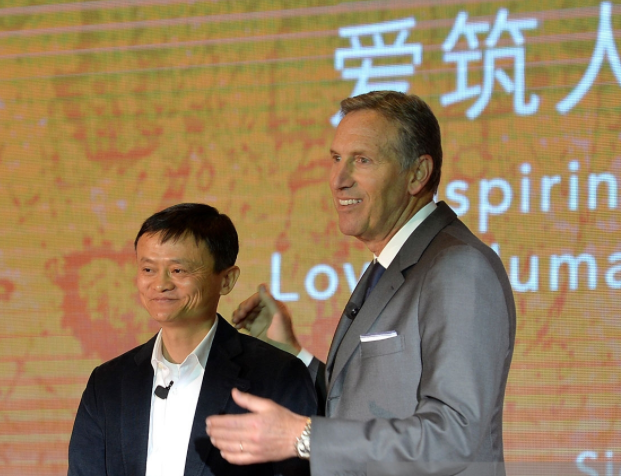
Localizing Your Brand to Other Cultures
Jack Ma asked Howard Schultz to speak in China in front of his Alibaba staff. As Schultz was talking, he noticed that most of the people in the audience were really old. But it was explained to him that those were the parents of the employees. Every company wide event, Ma invites the parents of the employees because the family unit is so important to Ma. Jack Ma created a family company. Howard Schultz copied that so that Starbucks employees invite their parents, aunts, uncles and celebrated the children and the family, to grow with the company. They want Starbucks healthcare for the parents; created with the Chinese government and an insurance company. The price of admission is that you need to be value based but you need to have the financial performance as well. Again, these aren’t mutually exclusive things, according to Schultz.

Be Intellectually Curious
You should be looking around corners and see what others don’t. Sometimes you will be in an uncomfortable situation because of that. You can’t learn stuff in a textbook. It’s not the worst thing to make a career mistake. Learning and practicing your craft in whatever role you are in now is critical.
For example, Howard Schultz worked for Xerox because it was considered such a great company. Xerox training centre for professional selling skills. He became an assistant of a sales. You had to take the humility of rejection and perseverance and keep going in sales. Creating leads for the actual sales person.
Ask HR What You Can Do
Ask them by stating: This is where I am today, what can I do outside of the reference of my immediate job to go get myself more informed and more involved. Ask your manager, why was that decision being made? You have to be prepared to learn, asking questions.

Easier to Disrupt Rather Than Invent a New Category
Most business ideas that turn into startups: those businesses to do not succeed. As a baseline, the odds are against you. There is always this question of what is the best road to take. Should I disrupt a category or invent one. It is very very hard to change consumer behaviour. Unless you have the most compelling platform and win the long race of losing money, it is much easier to disrupt an existing space.
What size of a business are you thinking about?
Howard Schultz invested in AllBirds shoes, the ethos and the quality of the shoe, social media and emotionally engaging with the consumers set them apart. There is always an opportunity for a niche player and we will have the nibble-ness that big companies simply don’t.

Importance of Focus
You need to have Focus on the business. Where can you add to the business. You will have a challenge and see where you can see where you are applying your time. Assess what you think that you have had the impact that you think you should have had.
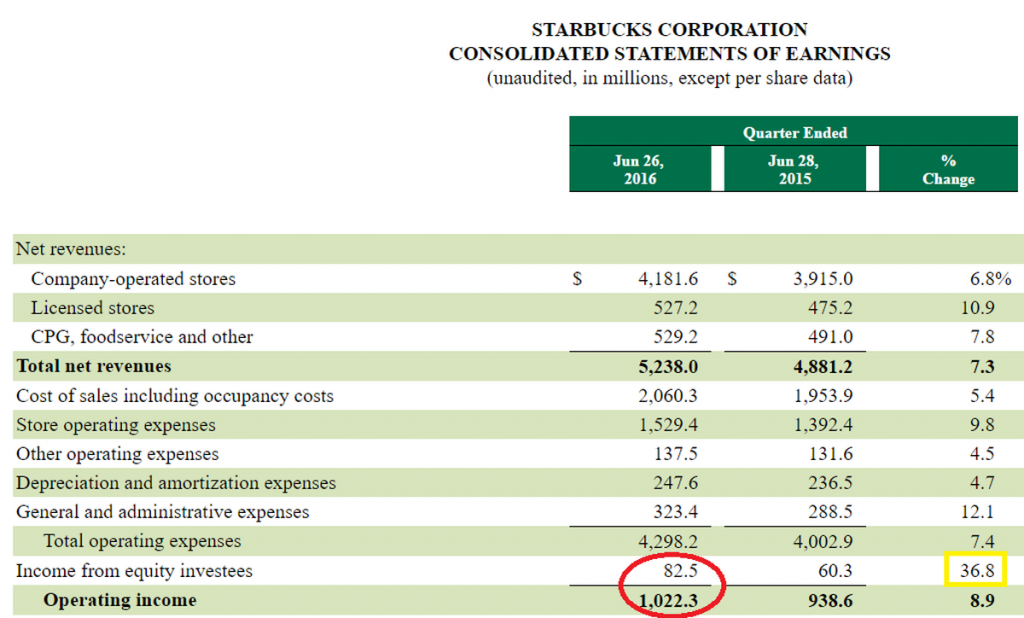
Ensure Your Economic Model is Viable
Everyone has a financial model and economics. If you can get 20% operating margin, you’re good ie if you have a 1M store you want to get a profit of 200K. If you are getting only 10% then you aren’t doing it right. Use the monthly income statement as a report card of what you already know. The income statement is just on aspect of the company. But the other issue is the values of the company. You should be engaging people on what is going on. Don’t be formal about these things; you need to be in the mud.
Think Customer First
Always imagine the customer and the employees at the table during your decisions. Does this solution improve the customer and employee story?
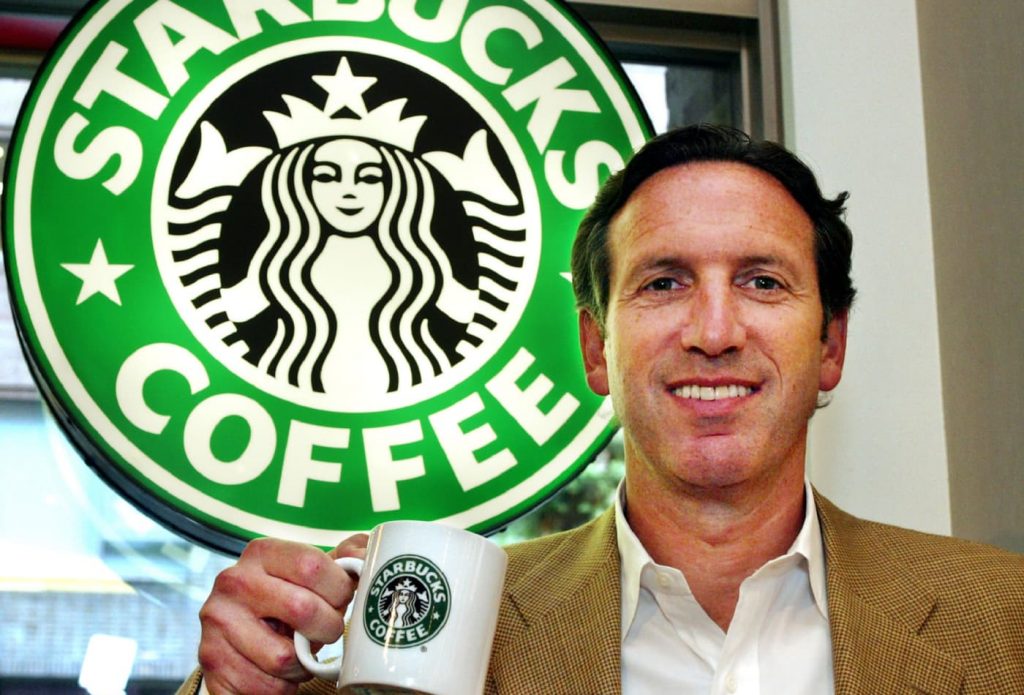
Do Your Due Diligence
If you are getting investors, do your due diligence on them. Their history should be the due diligence on the company. Talk to the entrepreneurs on how they acted in the past given a certain situation. You should want to know how that person has acted in the board room. One question is going to be how will we work together when/if things go wrong. Then set up a hypothetical. How can I rely on you. Then ask that person with the investors. Do your homework on your investors.
How much equity to give up?
As little as possible. At the same time, most CEOs are worried about control, but you can maintain control of the company even was 10% or less of the ownership as long as you lead well and keep making money.
Under promise and over deliver
The entrepreneurs should explain why they believe in the idea. It has to be personal relationship with the project. You have to promise the investor, with 100% conviction, that the investor will get the rate of return that they deserve.

Overinvest in Culture
Culture has been a catch-all but what does it really mean. It is vitally important in order to be success. You should understand human behaviour and then elevate your group of people that they are part of a company that is larger then themselves and their behaviour which will ultimately define the company. You want to have a company where your people are talking about their job in a positive light at the dinner table. They should love what this company stands for. You should also look at the actions you might not approve of and stand up and say that is not consistent with the brand of the company. And then have townhalls where people can express how they feel and where there will be no retribution and have it out. No retribution is key.

Hire a Values-Based Team
You should try to attract great people. People don’t want to be managed, they want to be part of something bigger than themselves, they want to see themselves as part of that vision, they want to be appreciated. So a good manager should create the atmosphere that we are building something larger than anyone of us.
You have to have a high standard, and you have to define what is mediocrity, what does it mean, what does excellent performance. “Our individual and collective responsibility is to the 300K employees of Starbucks” Howar Schultz. If you see something inconsistent with the value and you basically let it slide then you’re screwed.

Dealing with Competition
Do your homework about the marketplace. Features, benefits, price and experience understand it. Be mindful of the competition. We should be in control of our own destiny and need to believe in our own goals, regardless of the competition.
Cannibalize Yourself, Innovate and Undermine Your Comfort Zone
You have to be ahead of infrastructure, can the company take on a new startup like project? On the one hand companies chase too many things too early. Schultz doesn’t think that you can create value in having too many projects with the limited resources you have. You want to have incrementally accretive improvements to the brand.
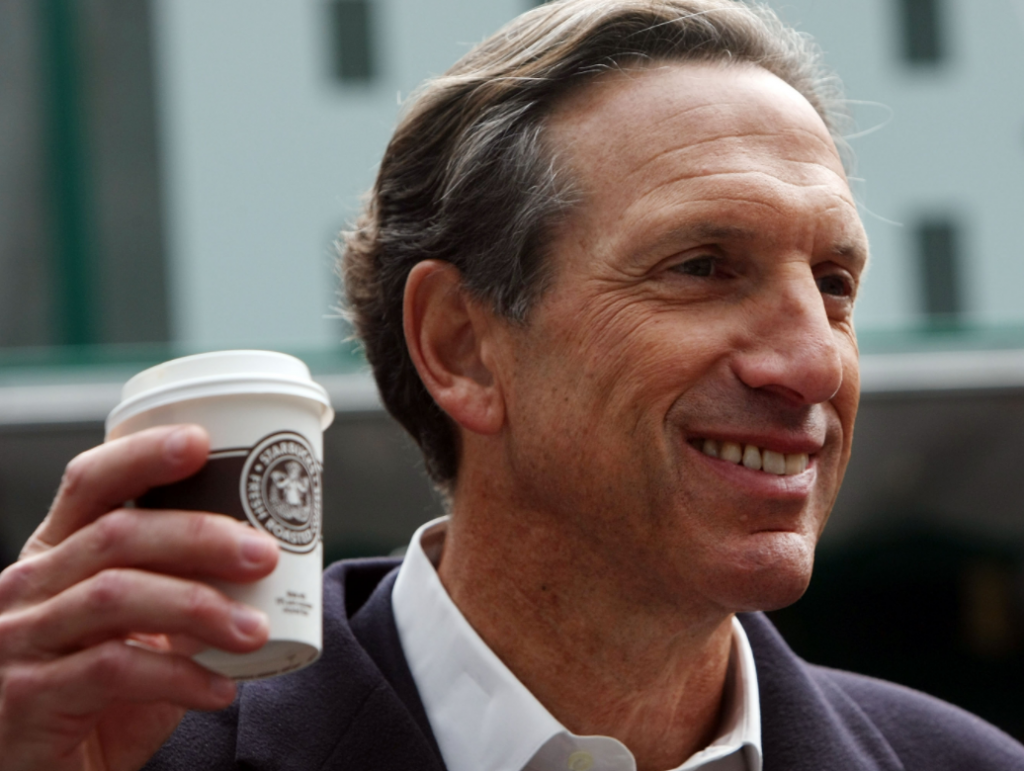
Leadership
It’s easy to lead when things are going well, it’s harder to lead when things have gone the wrong way. Growth typically covers over the mistakes. So the challenge is to continue the behaviour of an entrepreneurial. Story telling is a great way to tell the story of the company.
Transparency Means Sharing the Responsibility
In 2008, Starbucks suffered from hubris. Howard Schultz had to return to the company as CEO. He wasn’t really paying attention at board of directors level. So on his return, he said that here is the real problem; we are losing money for reasons X, Y, Z and there is a financial crisis right now. Schultz believes that you should trust your people enough to give them that information. How can you ask of them if you don’t share with great transparency. 50% of our customers who came last year, aren’t coming to Starbucks this year. The economic crisis was completely challenging. Are you going to hide the ball or share that bad information? Schultz believes you should share it so that people can take action on the ground.

Cuts Sometimes Must Happen
You might have to make cuts if the downturn is serious. The sooner you make the cuts to the company the better. There will be a significant impacts. You need to show empathy in that situation. You should dream it, but never say it out loud. There is no straight line, most of the challenges are not going to appear in the textbook. Make sure you have the right team in your game.

Presidential Run – January – March 2019
Howard Schultz initiated a presidential run in 2019 that looked at running as an independent and not a democrat. While it was short lived, it was memorable and thoughtful.
Schultz Identifies the Problems in US Federal Democracy Well
Parties Are Bunk
The two party system is a duopoly that does not represent the American public.
Extremism
is both a means of intensifying the GOTV “get out the vote” and a product of gerrymandered seats where the only flank to worry about is even a less compromising extremist insurgency (progressive left and radical right).

Hyper-Partisanship
If you say one thing positive about your opponent or move 5 inches away from the ideology, “you’re out” your own party will enforce a toll on you.They are unwilling to work together, hence the need to break the status quo…
Hyper-Media Partisanship
As mainstream media became increasingly under threat by a new online forces, they too have re-oriented over the last decade into hyper-partisan, re-enforcing.
The Public Doesn’t Get Represented
It’s so screwed up that really only 8 battleground states actually have impactful voters; the other 42 statesgo solidly one way or the other. While these 42 do fluctuate that gerrymandering certainly doesn’t help break the state by state red state blue state issue. If you are a democratic in a red state you’re screwed and vice versa.
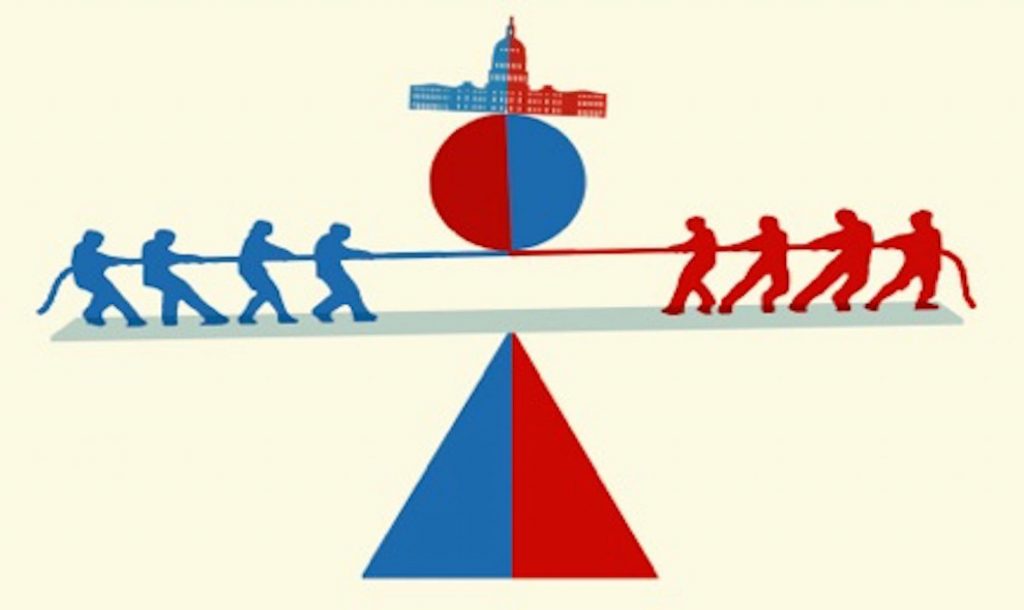
Legislative Gridlock
The federal government was not able to pass bills under Obama and then under Trump, executive orders shot up precipitously. If you read the Master of the Senate, you’ll see that parliamentary politics is a series of negotiations, faction building exercise. What Schultz was pointing out was evidently true, that the two party system has crushed compromise in the age of the internet. In the 1990s, everyone was worried that Gore and Bush seemed cut from the same wool, now it’s that the only way to get elected is to say the most unbalanced, irresponsible things.
Overlap of Self-Interest and Public Interest
Obviously successful politicians are interested in self-interest and self-preservation, and not doing the right thing on a regular basis but it is compounded by the fact that they do not know what the public actually wants…. just those who show up on their team as supporters + what can be legislatively accomplished after the election results are tallied.

Ideological Framework is A Form of Prejudice
The ideological framework that fits into two parties has been a taught way to organize voters into discreet camps. It has the comforting benefit of being able to distill complex reality into a coherent paragraph, the tragedy is that people actually believe that paragraph can make sense across all policy areas. The idea that ideology should be consistently applied is a marketing technique too, that you are voting for these specific policy preferences therefore “vote for me.” It’s goofy and wrong. The ideological spectrum does not overlay cleanly to delivery or outcomes across all policy areas. The budgetary and technical constraints of government do not match up with the ideological spectrum except in extremist regimes which are typically disastrously managed. And in fact, the spectrum is a crutch for our cognitive weakness and love of consistency and predictability, most voters should hate the left and right nomenclature because it does not reflect their needs and desires, but ultimately, people are busy and not compelling alternative is in place yet. Schultz simply said I would be the power broker between these two political machines…
Independents aren’t in the Middle
Instead, independents reject the spectrum. Being an independent is synonymous with being intellectually free. 40% of Americans are independents and it’s a mistaken idea that independents are in the middle, it’s more that they hate being owned by one or the other party which can then take them for granted.

The Schultz Brew
His solution is for him to run as a centrist that can deliver a bipartisan presidency. That can work with Democrats and republican lawmakers who he has pull but no allegiances to. Schultz wants to break the log jam in legislation. A fairly noble goal!
Getting People in a Room
Crowdsourcing policy solutions organically. This approach is a common one, but by lifting the partisan lens, Schultz is suggesting integrative solutions is what is needed.

What Schultz Got Wrong
Not offering anything truly innovative alongside his candidacy: he basically said he alone would fix the US.
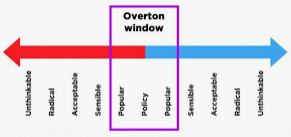
Extremism is a bargaining position 1/2 of the time
The reason that hard left candidate can win is that about 50% of their supporters know intuitively that a lot of the ideas on the far left aren’t financially or economically feasible, but that the tactic Trump initiated which was to shift the overton window further to their position which will be a better starting point for negotiations in the legislative system that the US has. There are elements of free education at the university level, but education is certainly overrated, it’s the person learning that matters. The fact is there is never any thought put into the execution of the policy. Schultz has a sense of this which is his saving grace. The tepid and annoying middle, is far more likely the outcome in negotiations, and Schultz is saying “I’ll be standing right there to get deals done.”
In Practical Terms
A big part of his gamble was that Bernie Sanders or a further left of centre Democrat would win the nomination. That turned out not to be the case as there were more centrist candidates vying for status in the eventual nomination’s team of rivals. So a running joke in Washington was that Schultz was enriching consultants who knew that he was not going to cross the finish line at all.

The Startup Logic In a Government Context
In order for Schultz to win, he has to win which seems circular but it’s true. Expectations of government are unrealistic, that projects have to be perfect from day one: Optics Optics Optics! Starbucks wasn’t built in a day though. For Schultz, he has to get Democratic and Republican voters to pivot to him in a system that has hardwired disappointing but binary choices for many many generation. The voter has to not worry that their vote is “splitting” or “spoiling” the vote before the election has been tabulated. Post-facto claims that X candidate split the such-and-such vote is a classic claim but it is wrong-headed since t only be derived after the vote. Pre-vote, it is a partisan campaign tactic.
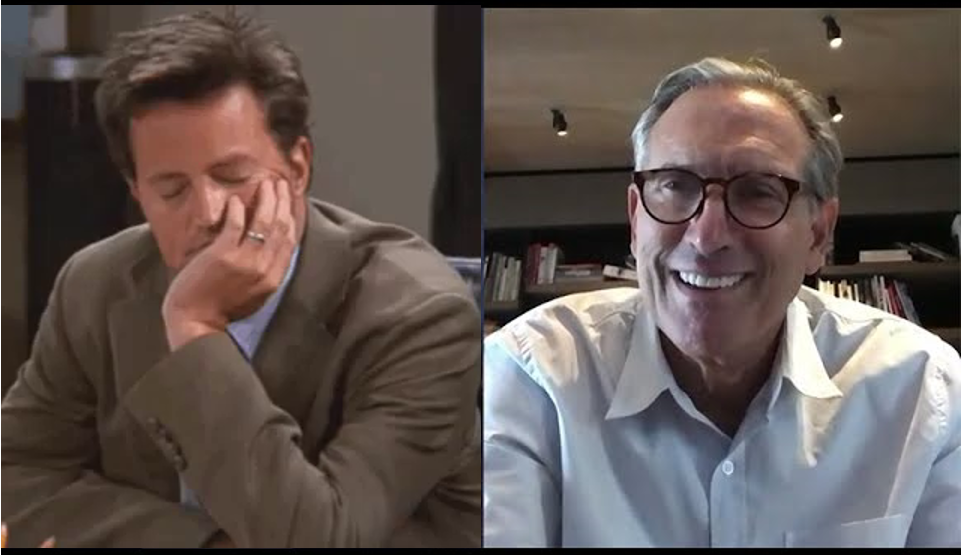
Howard Schultz Is Boring and Partisan
His ideas on what’s broken about US politics were spot on (I would have made drastic chances) but as a presenter, when you are competing with a train-wreck that everyone loves to hate or loves to love, Schultz was not the compelling story of 2019. He likely sold a few copies of his book however. By taking firm stances, he only subtracted from the coalition in his campaign, the triangulation trap being what it is. Saying that unions aren’t the answer to most companies he says, the management needs to do right by their employees. Don’t tell the teacher’s union of America. He was also saying the Democratic party was garbage, but then didn’t really show up with anything other than the line that he was the centrist candidate to steal votes from Trump and the eventual Democratic nominee. Ultimately, his talking points are simply a centric Democrat in the Joe Biden, Pete Buttigieg, Amy Klobuchar lane…If he had played in that arena, he might be president today. Not to say that would be how he would want to win…

